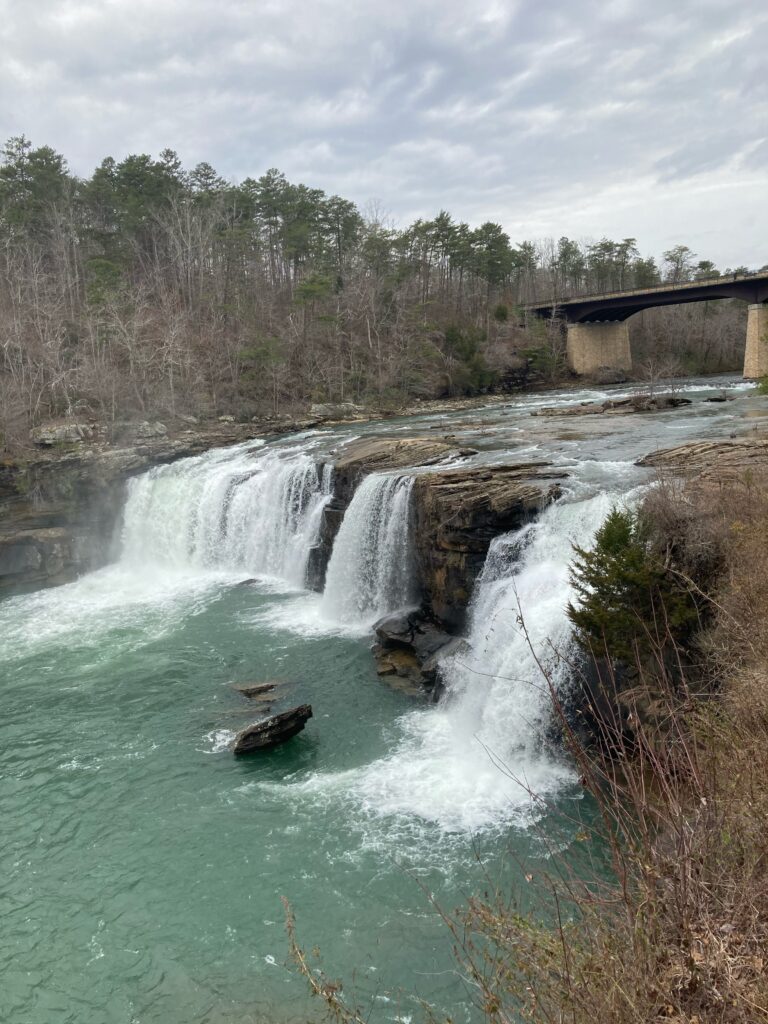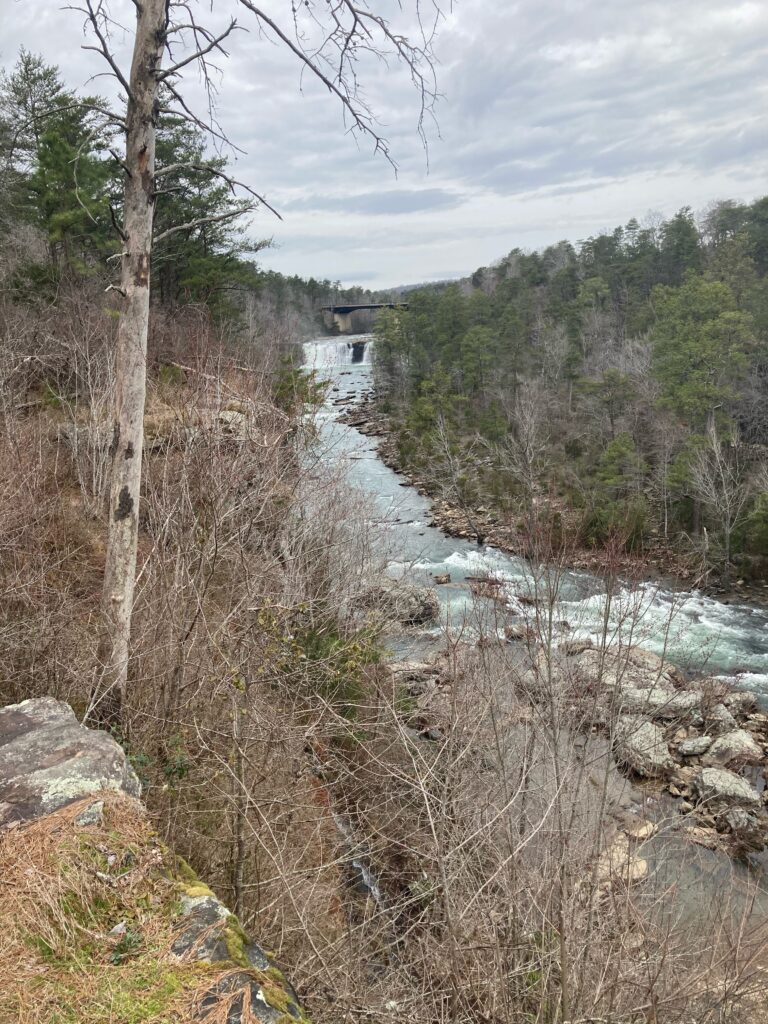Do you hate distractions? When you are “locked on” to a goal, task, or vision, how do you deal with distractions? I have historically not dealt well with them. I believe all Type A personalities or leaders try to stay on task or target and don’t deal well with distractions. Two weeks ago, my mindset was changed. I can clearly see the value in a diversion, provided you keep the end in mind.
My wife and I recently returned to New Orleans from Tennessee. It’s a long drive – over nine hours. We usually like to drive straight through, with as few stops as possible. This past week, we took a diversion. On the way to Tennessee the previous week, my wife saw a sign for the Little River Canyon National Preserve. We had previously discussed a leisurely return trip taking two days and seeing the sights along the way. We added this place to the list of sights to see on the way back.
We got to Tennessee and were deeply involved in a number of activities and tasks. We ran out of time and decided to drive back in one day. We passed a couple of places in Tennessee and north Georgia and decided to skip them, as they were too far off I-59. The Little River Canyon Center is about 20 minutes off the interstate, so when we got close to the Fort Payne, Alabama exit, we decided to make a diversion. Being that close to the Interstate, we wouldn’t lose much time if it wasn’t worth it. (For more information about the preserve, take a look at https://www.nps.gov/liri/index.htm)
We took the exit, and went to visit the Little River Canyon Center. We were impressed with the visitor center, and agreed to take a scenic drive along the Little River. We started at an overlook and made an agreement if it wasn’t worth it, we’d turn around and head to New Orleans.

We got to the first stop and were awe-struck by the majesty of the scenery. We decided to take the scenic drive for half of it, and were very glad we did. The pictures attached to this post don’t do the scenery justice. If you ever find yourself driving on I-59 in northeast Alabama, you should allow some time to slow down and enjoy this preserve.
I thought about this diversion when we got back to New Orleans, and could easily see the application to leadership. As a leader, odds are good that you have a solid vision and destination in mind for your organization. If you are like me, you want to stay on task. Life doesn’t happen that way. Sometimes, even the leader needs a diversion.
The scenery of the Little River Canyon rejuvenated me on the long journey from Tennessee. We didn’t lose that much time, and enjoyed the deviation tremendously. Not only do leaders need a detour periodically, but they should embrace it. We stayed on task and ultimately met our goal of returning to New Orleans safely. This time, we did it in a relaxed manner. There’s nothing like a waterfall or beautiful, clear river flowing to calm nerves and give such positive feelings. Instead of feeling pressured by the deviation, I was relaxed and enjoyed the ride.

How do you deal with distractions in your personal or vocational life? Do they stress you out? I know in the past, there were times in my leadership journey that I got very stressed when someone, something, or some event took me off task.
In the past, one way I’ve dealt with departures from my goal or task was to avoid them. I could generally sense them coming, and would take great measures to side-step them and stay focused on my goal, task, or vision. Sometimes I still do this.
I learned last week to truly welcome diversions. They can have a calming, peaceful, energizing effect. I was centered, happy, and devoted to the ultimate vision of a safe journey. Sometimes, distractions can have the same effect on the leader. As long as the leader keeps the end in mind, welcoming the diversion can have its rewards.
As you proceed along your own leadership journey, I challenge you to re-think your reactions to diversions. Don’t give up on your vision or ultimate destination, but react with the knowledge that this particular deviation may end up having a very positive impact on your leadership.
There’s a phrase I heard from former service members who served in Iraq or Afghanistan. The phrase is “embrace the suck.” While that may not be very glamorous, it could be a good start to reacting differently to departures from the path you’ve set for yourself. The other well-worn phrase is that every cloud has a silver lining. Keep the end in mind, but embrace the potential learning and rejuvenating impact of diversions along the way.
Have you experienced the surprise benefit of diversions? I’d love to hear your comments. If you are looking for someone to coach you on your leadership journey, email me at mike@mrhensonllc.com.
